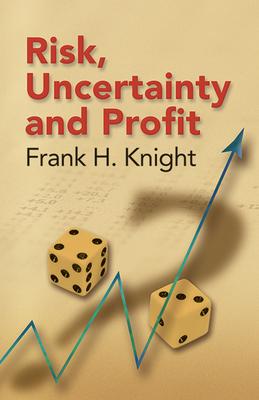
Author Frank H. Knight's methodology served as the foundation of the Chicago School of Economics, maintaining that competition in a free market economy is the best method for achieving economic health. In this 1921 book, Knight explains why perfect competition would not necessarily eliminate profits, because of "uncertainty," rather than "risk." He contends that even in long-run equilibrium, entrepreneurs would earn profits as a return for their toleration of uncertainty. Knight's reasoning remains valid in the twenty-first century, and his definitions of risk and uncertainty continue to be taught in modern economics classes.
Sociologist Edward Shils declared Risk, Uncertainty and Profit "a brilliant book," noting its interest not only to economists but also to social philosophers, sociologists, game theorists, and other specialists in social science.
Author Frank H. Knight's methodology served as the foundation of the Chicago School of Economics, maintaining that competition in a free market economy is the best method for achieving economic health. In this 1921 book, Knight explains why perfect competition would not necessarily eliminate profits, because of "uncertainty," rather than "risk." He contends that even in long-run equilibrium, entrepreneurs would earn profits as a return for their toleration of uncertainty. Knight's reasoning remains valid in the twenty-first century, and his definitions of risk and uncertainty continue to be taught in modern economics classes.
Sociologist Edward Shils declared Risk, Uncertainty and Profit "a brilliant book," noting its interest not only to economists but also to social philosophers, sociologists, game theorists, and other specialists in social science.
Paperback
$17.95